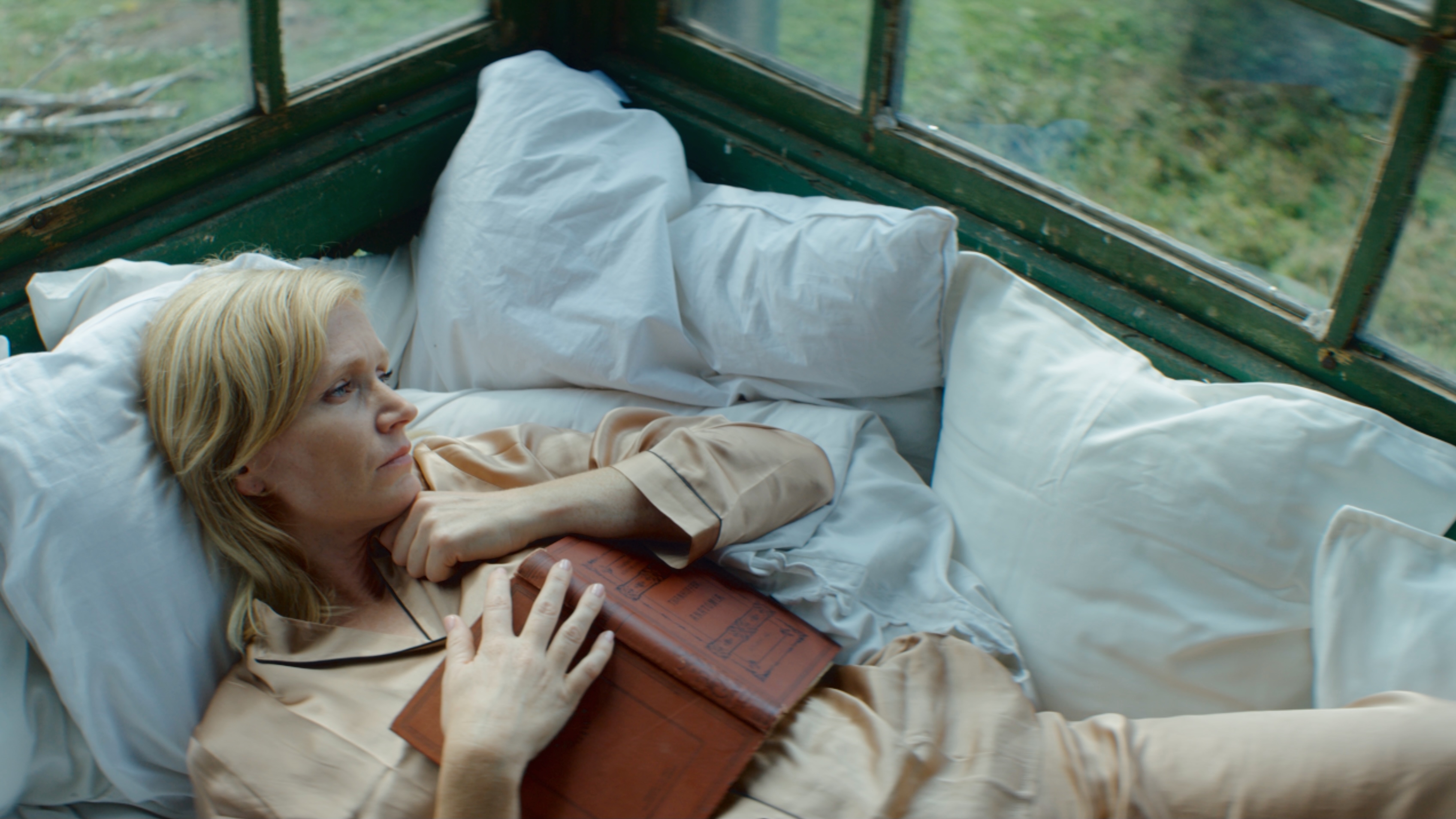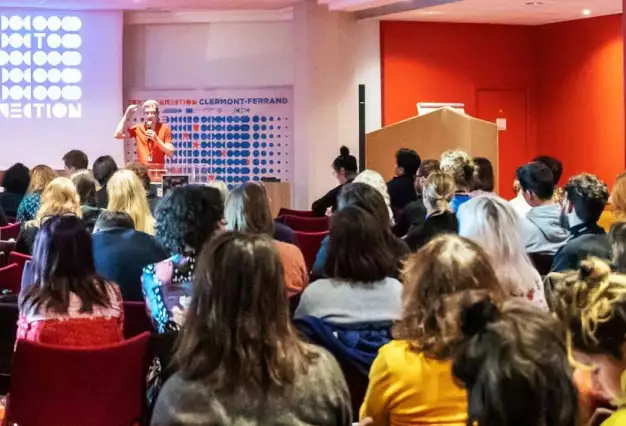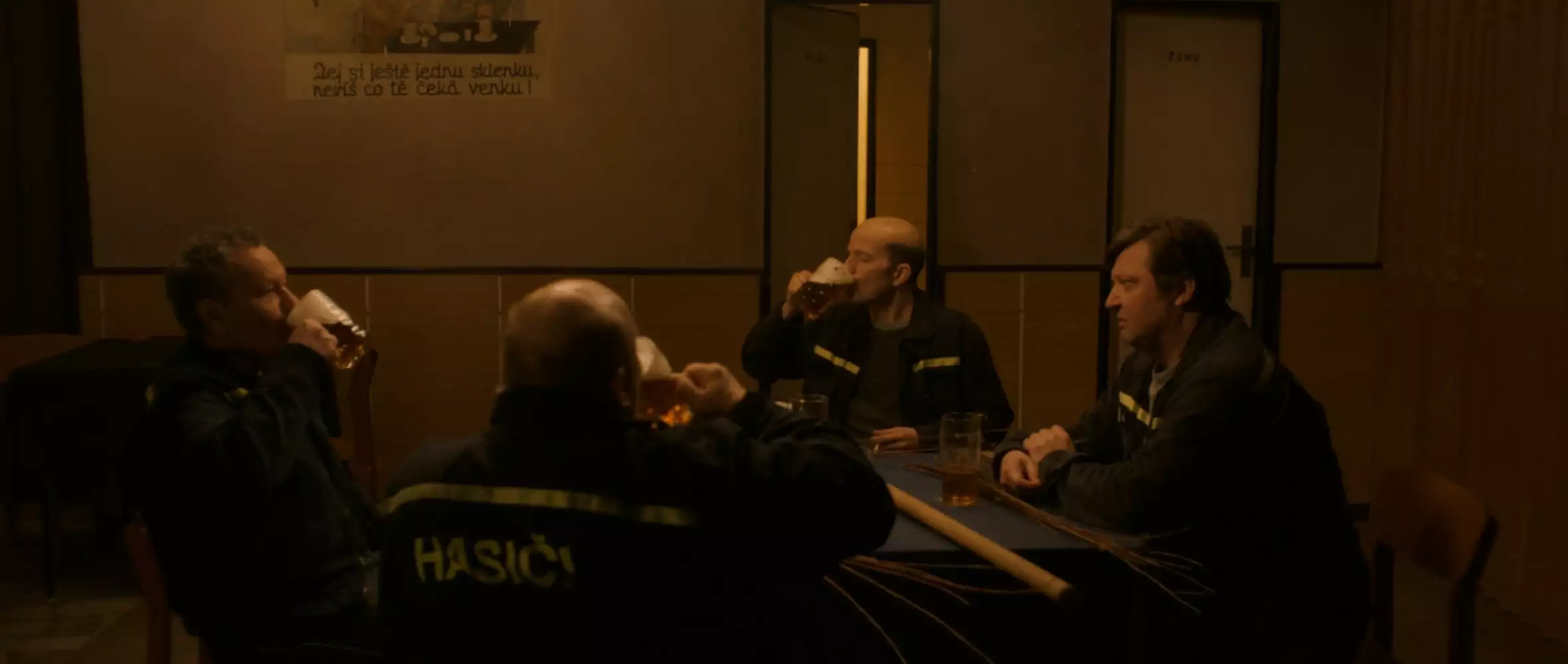
18 January 2022
Berlinale 2022: Czech films present in Panorama, Generation or Classics
Berlinale 2022: Czech films present in Panorama, Generation or Classics

Czech fiction feature film Somewhere Over the Chemtrails by Adam Koloman Rybanský will world-premiere in the Panorama section along with minority co-production Beautiful Beings. Short animated film Suzie in the Garden by Lucie Sunková will celebrate world premiere in the Generation Kplus competition section and TV miniseries Suspicion by Michal Blaško will enrich the Berlinale Series selection. Last, but not least, the digitally restored Larks on a String by Czech New Wave helmer Jiří Menzel will spice up Berlinale Classics. Czech cinema will be present also at the Berlinale Co-Production Market, as this year's selection includes Czech-Irish Kafka by Agnieszka Holland and Slovak-Czech The Spring by Ivan Ostrochovský.
Somewhere Over the Chemtrails and minority co-production Beautiful Beings to world-premiere in Panorama
Berlinale’s Panorama section will host world premiere of Czech fiction feature film Somewhere Over the Chemtrails. The debut by Adam Koloman Rybanský provides an insight into the universe of a small Czech village and its people.
The film tells a story of Standa and Bróňa, volunteer firefighters in a small village. While the clumsy Standa is looking forward to the birth of his son soon, his older friend Bróňa is no longer enjoying life because his wife has recently died. Things begin to change when a van crashes into a crowd of people during the Easter Fair. Before anyone notices, the driver runs away from the car crash. People believe it is a terrorist attack and the festive mood is replaced by an atmosphere of fear, hatred and misinformation, into which the locals, including the frightened Standa, sink. Bróňa, who is convinced of terrorism, is trying to do something to improve the situation. The sense of danger pumps new blood into his veins, and the fire brigade becomes a militia.
Rybanský is a graduate of Directing department at Prague’s FAMU. In his two short student films – Friendly Sport Meeting (2017) and Home Sleep Home (2018) – the director focused on the themes of Czech national character and village life. In Somewhere Over the Chemtrails, which is conceived as a dramedy, Rybanský and his co-writer Lukáš Csicsely (who also worked on Damián Vondrášek’s Frontier) develop these themes into a feature-length film.
Somewhere Over the Chemtrails is produced by young Czech company Bratři, with Eva Pavlíčková and Pavel Vácha acting as main producers. The co-producers include FAMU, Czech Television, freeSaM and Magiclab.
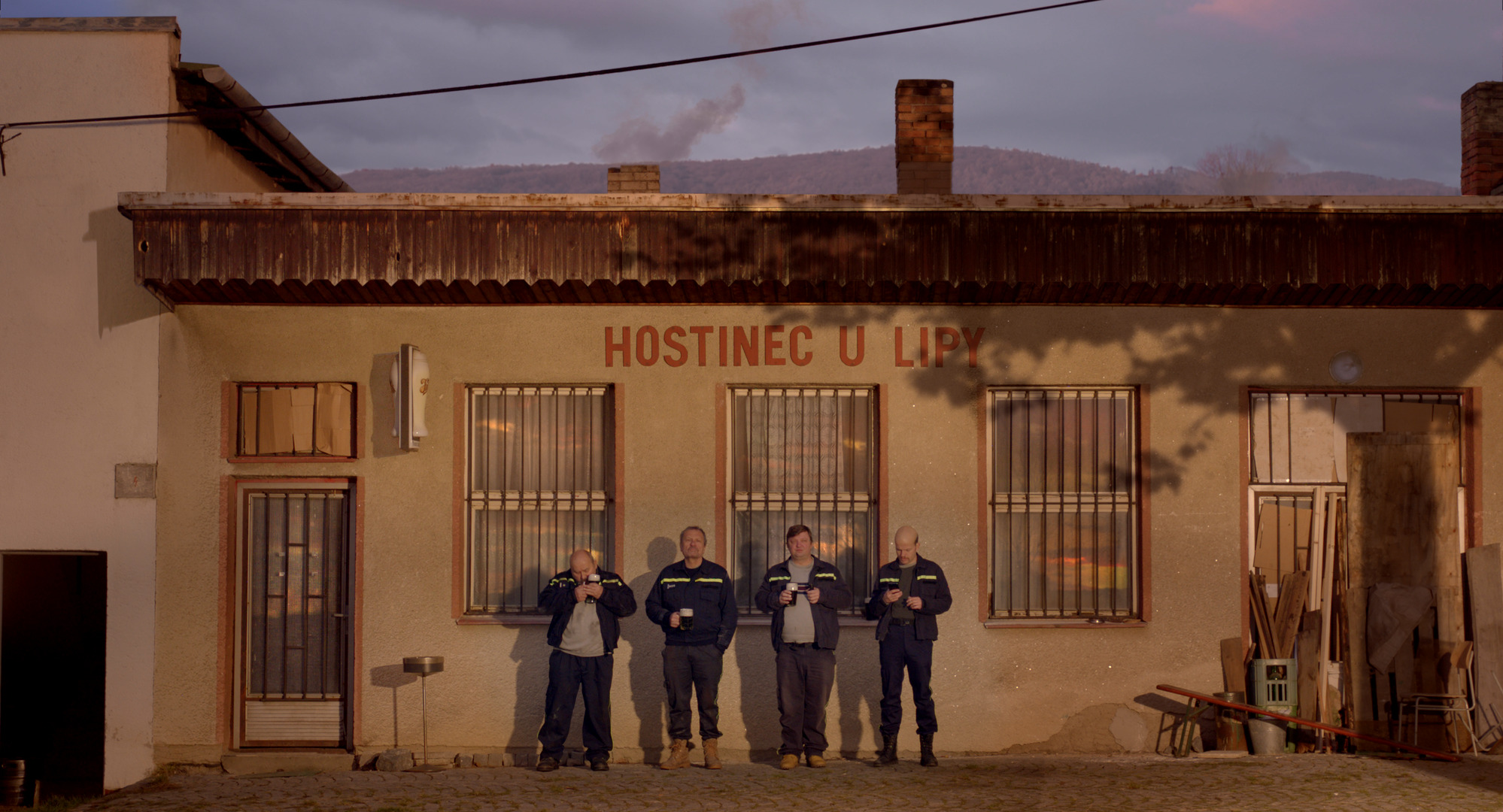
Berlinale’s Panorama will also host the world premiere of Icelandic-Danish-Swedish-Dutch-Czech co-production Beautiful Beings, written and directed by Guðmundur Arnar Guðmundsson.
The film follows Addi, a boy raised by a clairvoyant mother, decides to adopt a bullied misfit into his gang of outsiders. Left to their own devices, the boys explore aggression and violence but also learn about loyalty and love. As the group’s behavior escalates towards life-threatening situations, Addi begins to experience a series of dreamlike visions. Can his newfound intuition guide him and his friends back to a safer path, or will they dive irrevocably into further violence?
Beautiful Beings is Guðmundsson’s second feature film after Heartstone (2016), which travelled many festivals including Venice FF, Toronto IFF and many others, and was honored with the European University Award within the EFA 2017. As in his first film, Beautiful Beings tackles the theme of adolescence.
The film is produced by Anton Máni Svansson of Join Motion Pictures in Iceland, in coproduction with Motor Productions (Denmark), Hobab and Film i Väst (Sweden), Bastide Films (The Netherlands) and Negativ on the Czech side with producers Pavel Strnad & Petr Oukropec.
The Czech Film Fund supported Beautiful Beings with EUR 132 000. The film was also supported by the Icelandic Film Centre, Iceland’s Ministry of Industries and Innovation, the Icelandic National Broadcasting Service RÚV, Sena, Danish Film Institute, DR, Scanbox, Swedish Film Institute, Film i Väst, Netherlands Film Fund, Netherlands Film Production Incentive, Nordisk Film & TV fond, and Eurimages.
Panorama has its finger on the pulse of contemporary international cinema and it is also focused on queer, sexy and edgy cinema. Czech filmmakers are regularly invited to introduce their films in front of the Panorama Audience Jury, which since 1999 gives out the Panorama Audience Award. Last Czech film which premiered in Panorama was the documentary When the War Comes by Jan Gebert (2018). I, Olga Hepnarova (Petr Kazda, Tomáš Weinreb, 2016) opened the festival in 2016 and Daniel’s World (Veronika Lišková, 2014), Kawasaki’s Rose (Jan Hřebejk, 2010), Grandhotel (David Ondříček, 2007), The Landscape (Martin Šulík, 2001), The Spring of Life (Milan Cieslar, 2000) or Hanele (Karel Kachyňa, 2000) were also introduced in Panorama over the last two decades.
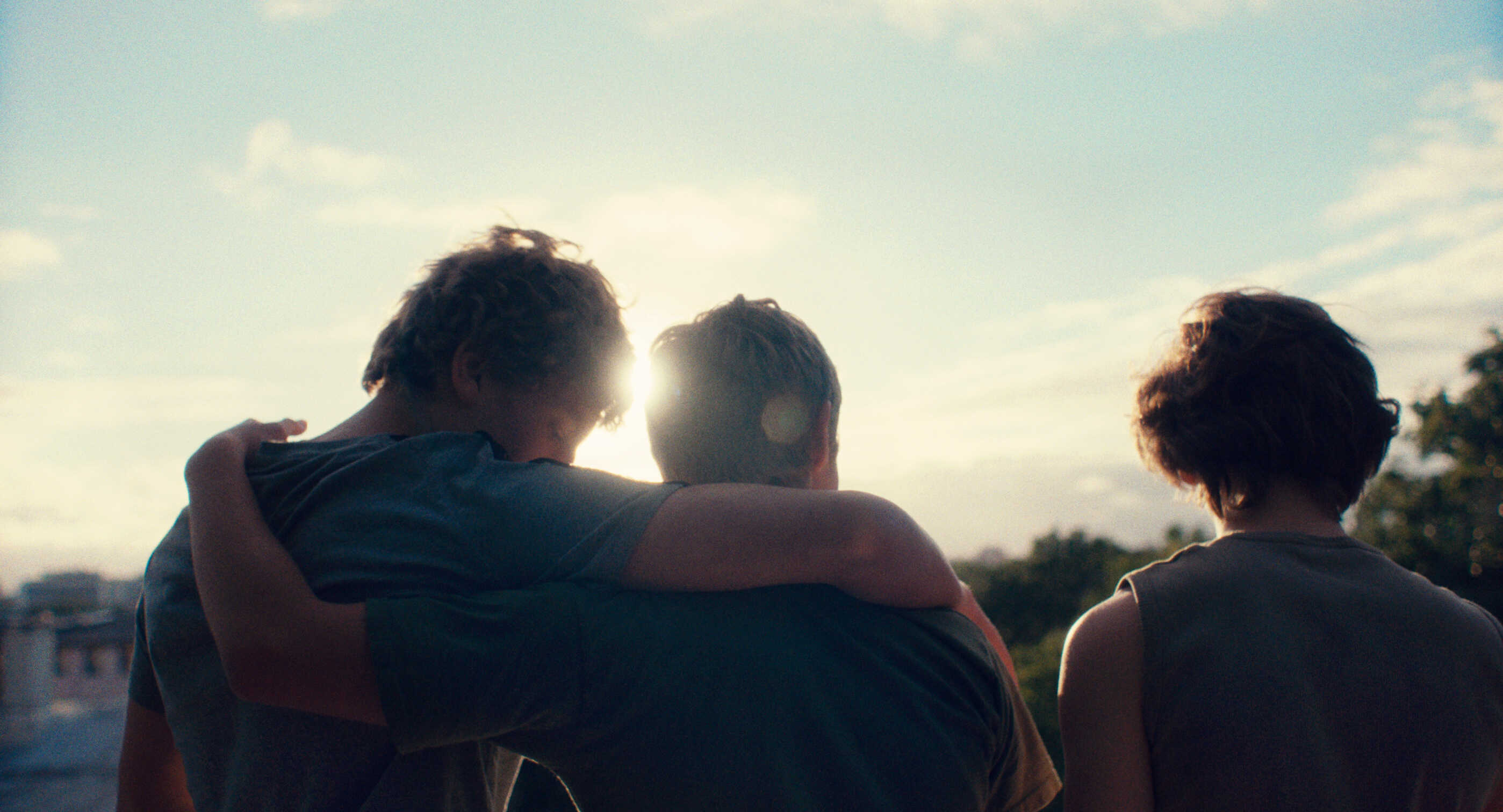
Suzie in the Garden to world-premiere in Generation Kplus
Czech cinema celebrates the return to Berlinale's Generation. Lucie Sunková will world-premiere her short animated film Suzie in the Garden in Generation Kplus competition. The film tells a story about a little girl who goes with her mother and dad to an allotment outside the city. One day she meets a black dog and discovers a mysterious garden. Who is it that lives there? Suzie is a little afraid. But what to do when you are afraid of someone, but you find their key on the path?
A scriptwriter, artist, director and animator Sunková sees her Suzie as a dialogue with childhood. "I tried to enter into the thinking of the little girl, to understand her imagination, fears and charming childish self-centeredness. I tried to create a film that would speak a language understandable to children and at the same time be able to evoke memories of the moments and situations we experienced as a child," explains the director.
Sunková is known as an author of children's books and as film animator, mainly focused on painting with oil paints on glass under the camera. Over the last two decades, the director created several animated shorts - such as The Raven (2000), Portrait (2002) or The Tree (2015). Sunková also worked on Florence Miailhe's celebrated animated feature The Crossing (2020), where she was the Head of Animation Department. The film was awarded Jury Distinction of Annecy's main competition last year.
While working on The Tree and The Crossing, Sunková was accompanied by producers Martin Vandas & Alena Vandasová of established Czech company MAUR film, who also stand behind Suzie in the Garden as main producers, in co-production with Slovak Super film. MAUR film was also involved in Oscar-nominated and Student Oscar-winning animated short Daughter by Daria Kashcheeva (2019) and animated features Fritzi - A Revolutionary Tale (2019) or the Fimfarum series.
Suzie in the Garden was made with the support of the Czech Film Fund: EUR 40 000 for production.
Czech films have a rich tradition of participation in Generation Kplus competition. Over the past five years, the section included The Kite by Martin Smatana (2019) and Leaf by Aliona Baranova (2020). Slovak-Czech Little Harbour by Iveta Grófová won the competition's Crystal Bear in 2017.
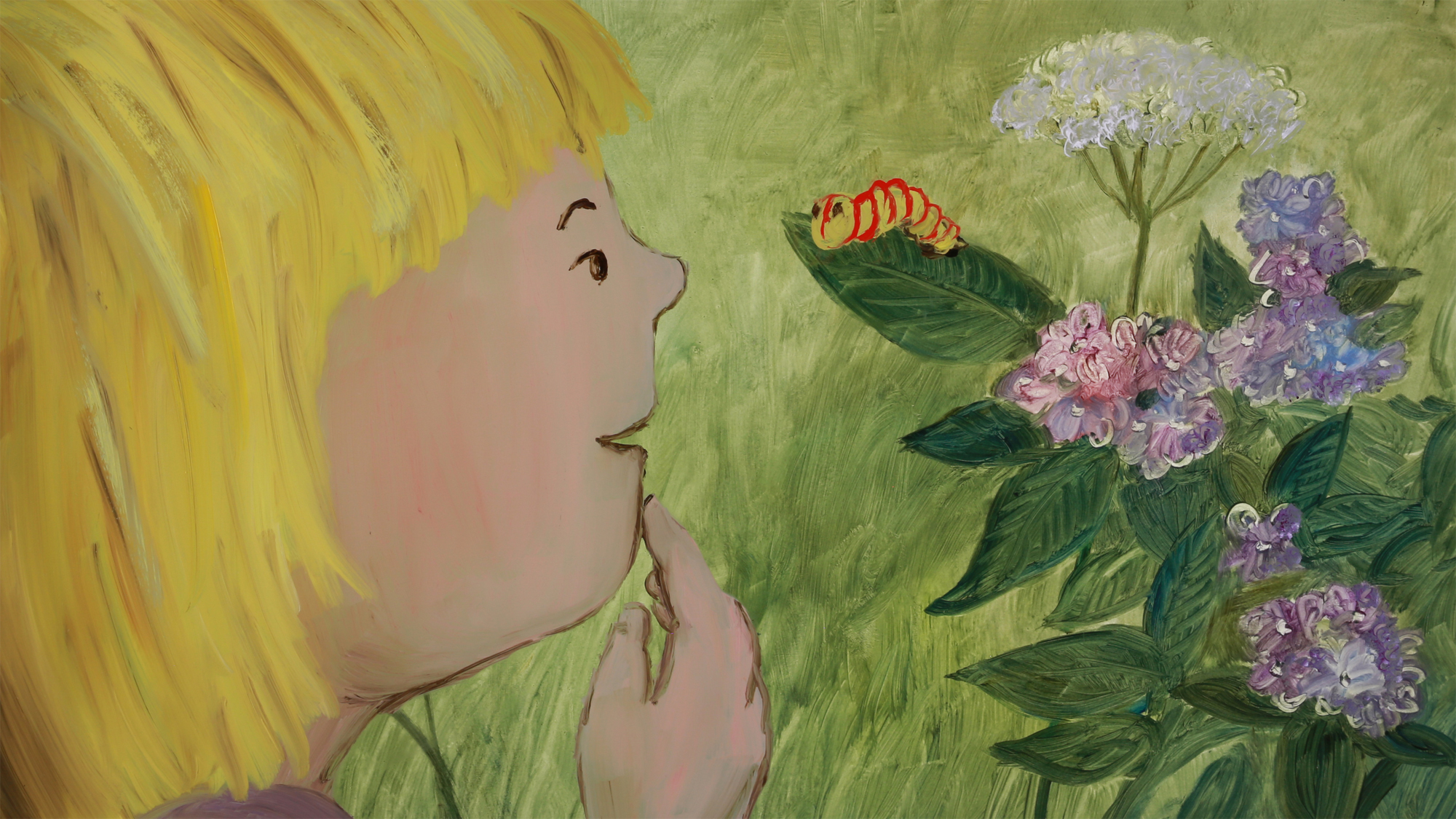
Suspicion enriches Berlinale Series
TV miniseries Suspicion by director Michal Blaško and scriptwriter Štěpán Hulík will be screened as part of Berlinale Series, as the first Czech representative ever.
The series tells a story of nurse Hana Kučerová who never smiles and who treats her patients poorly. When a patient dies under suspicious circumstances, the public, the media, the police, and her colleagues are clear as to who is guilty...
Slovak-born director Michal Blaško, graduate of Prague's FAMU, garnered attention with his student films Fear (2015), which world-premiered at the San Sebastian IFF, and Atlantis, 2003 (2017), which was selected for Cannes' Cinéfondation and won the Magnesia Award for Best Student Film at the Czech Lion Awards. Blaško's feature film debut, drama Victim (expected 2022), was awarded the TRT Award at the Works in Progress within Karlovy Vary's industry platform Eastern Promises last year and it was also presented at the Rome's MIA Market.
Suspicion is produced by Czech Television and Czech company nutprodukce, with French ARTE G.E.I.E. also on board. Producers Jakub Viktorín, Tomáš Hrubý and Pavla Janoušková Kubečková of nutprodukce are no strangers in the international field. While Janoušková Kubečková produced celebrated documentary Brotherhood by Francesco Montagner (2021), Hrubý was involved in successful series Wasteland by Ivan Zachariáš (2016) and Burning Bush by Agnieszka Holland (2013). Viktorín produces Blaško's upcoming Victim. In addition, the scriptwriter Hulík worked on both Wasteland and Burning Bush.
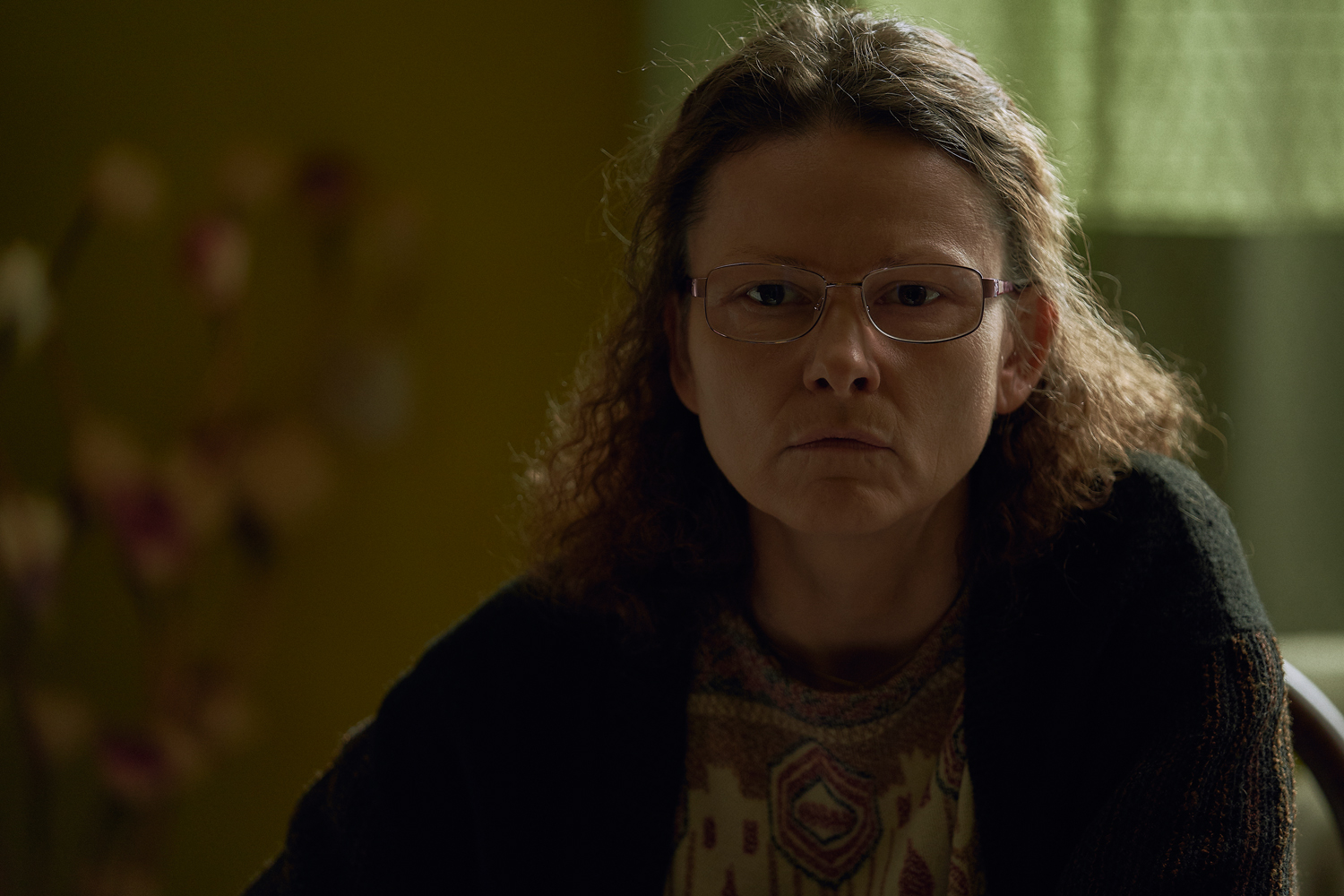
Berlinale Classics spiced up by Golden Bear-winning Larks on a String
Another batch of digitally restored film classics and rediscoveries will celebrate world premieres in the Berlinale Classics section. This year, the Czech Republic is represented by Larks on a String by Jiří Menzel which celebrates great comeback to the festival, 32 years after winning the Golden Bear.
Jiří Menzel’s fourth film was approved for production during the Prague Spring (1968). It was inspired by motifs from Bohumil Hrabal’s short story collection An Advertisement for the House I Don’t Want to Live in Anymore. The promising young filmmaker and the successful writer followed up their collaboration on Oscar-winning tragicomedy Closely Watched Trains (1966).
Larks on a String takes place in the steelworks, where the communist totalitarian regime sent politically questionable people for re-education during the Stalinist period. A former prosecutor meets the barber Kudla, the young Adventist Pavel and his beloved Jitka. Meanwhile, the supervisor Anděl maintains close watch over everyone. This satirical take on the political repression of the 1950s was prohibited from distribution and locked away in the proverbial “vault” immediately after its completion in 1969, where it stayed for twenty years. Thus, the film’s premiere did not take place until after November 1989.
The restoration of Larks on a String was funded from the donation of Mrs. Milada Kučerová and Mr. Eduard Kučera, and it was carried out by Karlovy Vary International Film Festival in collaboration with the Národní filmový archiv, Prague and the Czech Film Fund in UPP and Soundsquare in 2021.
In Berlinale Classics, the Czech Republic had its representative also in 2020. The 70th edition of the festival introduced digitally restored Distant Journey by Alfréd Radok.
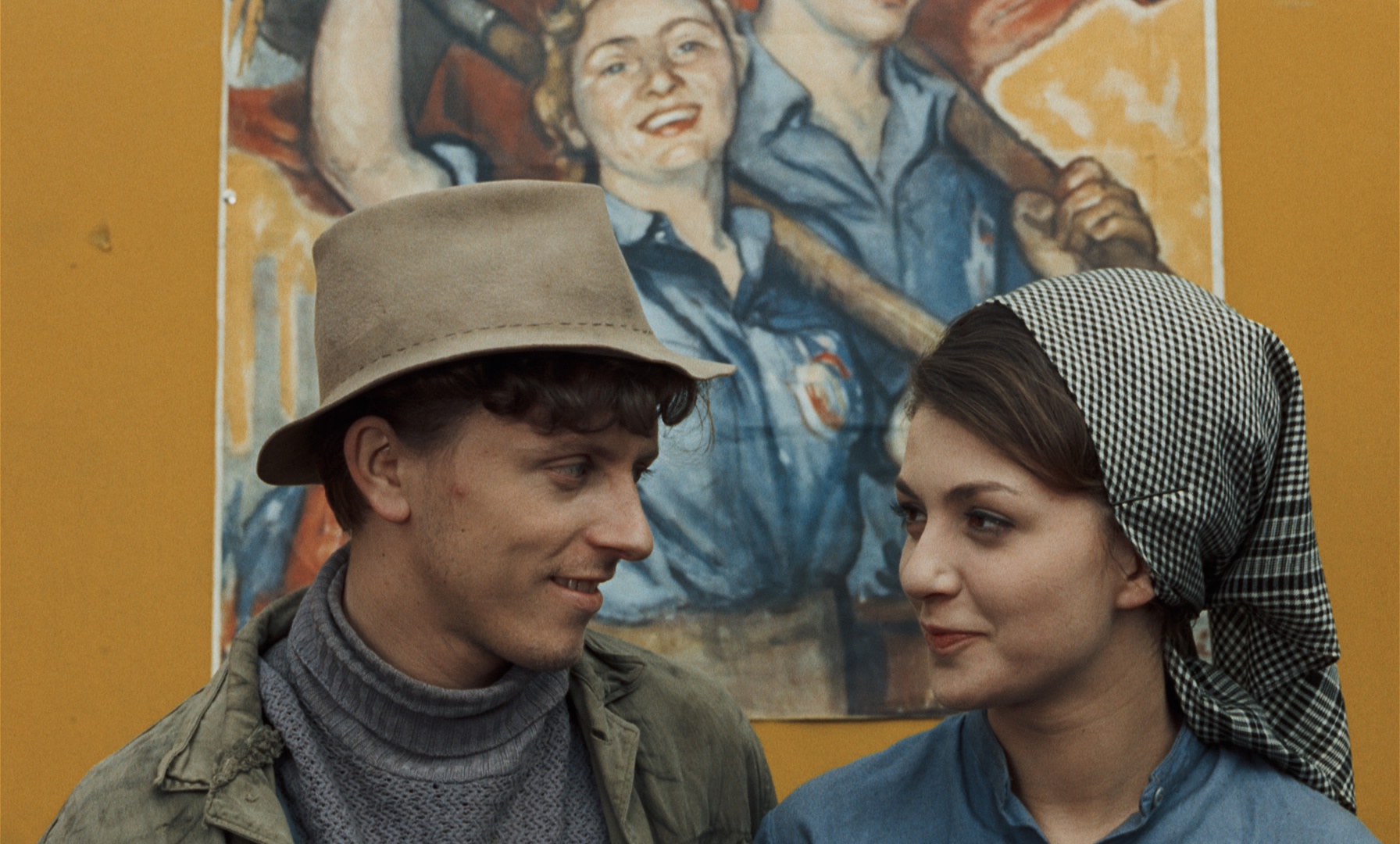
Two Czech projects at the Berlinale Co-Production Market
Berlinale Co-production Market, one of the world's largest events of its kind, revealed this year' selection of the most promising upcoming projects in development which will be presented within the online edition from February 12 to February 16, 2022. Czech-Irish Kafka by Agnieszka Holland and Slovak-Czech The Spring by Ivan Ostrochovský appear among the selected films.
Kafka will be a dazzling kaleidoscopic mosaic of a film that dramatizes the famous writer’s life and imagination in a series of standalone vignettes that span Kafka’s life from his birth in pre-war Prague, to his tragic death in 1924 in Berlin, to scenes from the future he prevised.
During her celebrated career, Agnieszka Holland was three times nominated for an Academy Award: Angry Harvest (Best Foreign Film, in 1986), Europa Europa (Best Adapted Screenplay, in 1992) and In Darkness (Best Foreign Film, in 2012). At the Berlinale, the Polish-born auteur won the Silver Bear for Spoor in 2017, and was nominated for the Golden Bear three times (Gorączka in 1981, Spoor in 2017, Mr. Jones in 2019). Holland is a graduate of Prague's FAMU and Kafka will be her second Czech film after Charlatan which premiered in the Berlinale Special Gala in 2020.
The film is planned as Czech-Irish co-production with Šárka Cimbalová of Prague's Marlene Film Production being the main producer. For the production of Kafka, Cimbalová rejoins forces with producer Sam Taylor of Irish Film and Music Entertainment who also co-produced their previous work, celebrated drama Charlatan. Film about Czechoslovak healer Jan Mikolášek was Agnieszka Holland's first Czech feature film, which celebrated the world premiere at the festival in 2020 and as a project in the making, it also took part in Berlinale Co-production Market in 2017. Since its world premiere, the film collected several achievements - Oscar shortlist, European Film Award nomination, Best Feature Film award at the Czech Lion Awards.
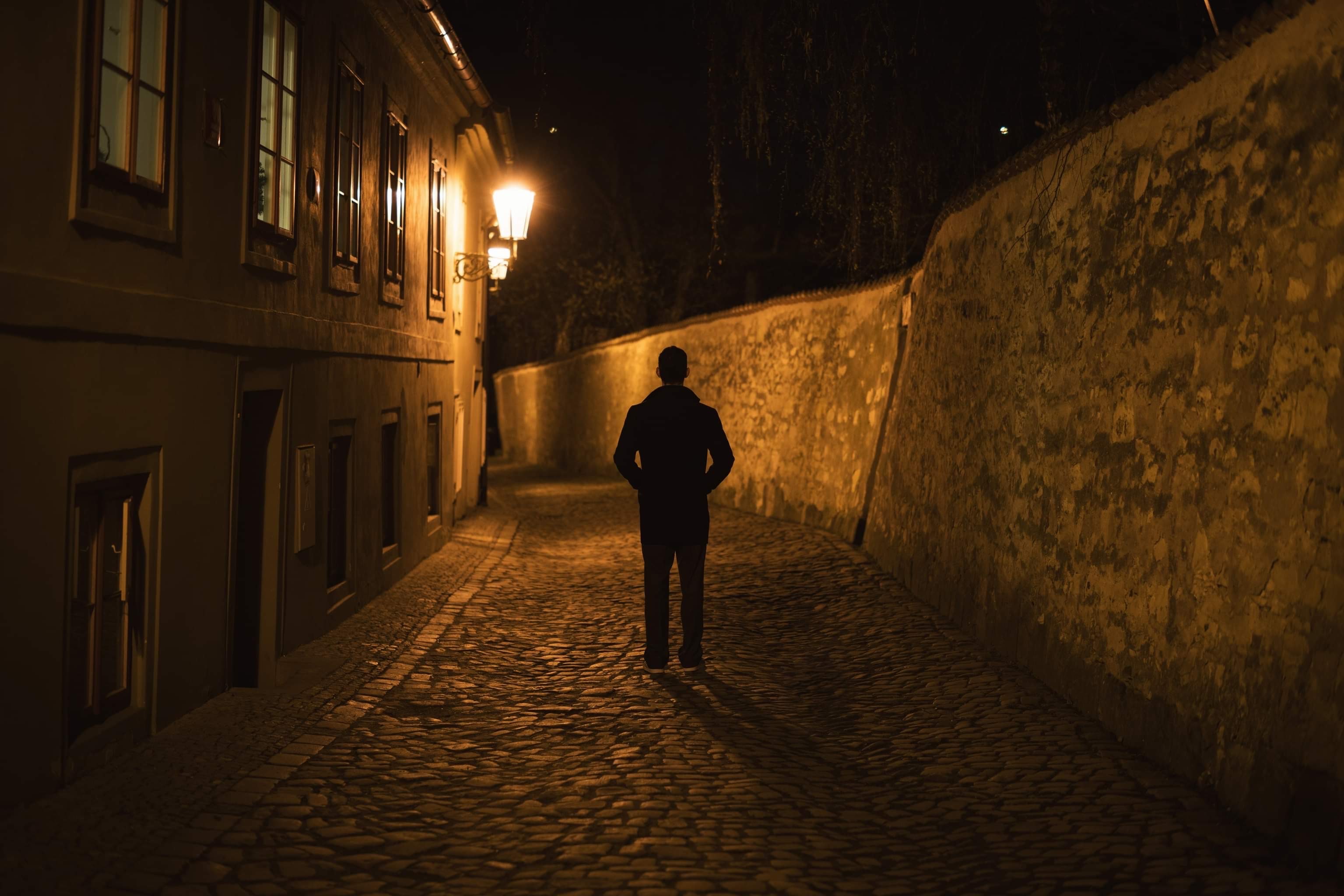
The Spring is set in Czechoslovakia during the ‘80s, where Agáta, a half-Roma nurse and Ingrid, a white gynecologist, bond over the institutionalised medical treatment of women in the local Roma community.
Ivan Ostrochovský's career is closely linked with the Berlinale. Slovak-born director and producer co-directed documentary Velvet Terrorists which was selected for Forum in 2013 and later on, the director world-premiered his debut Koza in the same section in 2015. His second fiction feature, Servants, also celebrated world premiere in Berlin, this time in newly-formed competition section Encounters. Ostrochovský also co-wrote and produced drama 107 Mothers which won the award for best screenplay of Orizzonti competition at the Venice Film Festival last year.
The Spring is produced by Ivan Ostrochovský, Albert Malinovský and Katarína Tomková of Slovak Punkchart films in co-production with established Czech company Negativ (Pavel Strnad & Petr Oukropec), Radio and Television Slovakia and Czech Television. Ostrochovský co-worked with Negativ also on his previous film Servants. The Spring was already supported by the Slovak Audiovisual Fund and by the Czech Film Fund (with EUR 280 000 last September).
Since 2004, when the Co-Production Market was launched, Czech projects have been selected eight times to this point: Substitute by Martin Krejčí (Bionaut) in 2004; Three Seasons in Hell by Tomáš Mašín (Dawson Films) in 2005, Protektor by Marek Najbrt (Negativ) in 2006, My Dog Killer by Mira Fornay (Cineart TV Prague) in 2010, A Certain Kind of Silence by Michal Hogenauer (Negativ - back then, the film was titled Outside) in 2016, Charlatan by Agnieszka Holland (Marlene Film Production) in 2017 and Nobody Likes Me by Petr Kazda & Tomáš Weinreb (Black Balance, love.FRAME) in 2018.
The Attachment Theory to be presented at the Berlinale Co-Pro Series
Berlinale Co-Pro Series, designed for extraordinary projects looking for suitable co-producers and financiers, selected promising Czech miniseries The Attachment Theory for its 8th edition.
The story of The Attachment Theory follows a loving mother and her two children whose relationship is disrupted by the adoption of a 13-year-old autistic girl who is not quite who she claims to be… Scarcely comprehensible example of manipulation, identity fraud and human confusion – these are the themes that stem from the well-known Czech case of child abuse, so-called The Kuřim Case.
The series is developed by producers Radovan Síbrt, Alžběta Karásková and Karel Poupě of PINK and written by Miro Šifra, Lucie Vaňková and Marie Stará. Celebrated filmmaker Olmo Omerzu will take over as a director. The creative team behind The Attachment Theory builds on a project called Saint Barbora, which was supported by the Czech Film Fund in early script form (EUR 6 000) in 2019 and as a project in development (EUR 32 000) in 2020.
Slovenian born director Olmo Omerzu made his first steps in filmmaking during his studies at Prague’s FAMU. His first two films (A Night Too Young, Family Film) premiered at Berlinale and San Sebastian, while his third feature, Winter Flies, landed him the best director award at Karlovy Vary IFF in 2018, six wins at the Czech Lion film awards, and a selection at Toronto IFF 2018. The world premiere of his latest feature, Bird Atlas, took place in KVIFF’s main competition in 2021.
The showrunner Radovan Síbrt is no stranger to Berlinale, him too. Jan Gebert's documentary When the War Comes, which Síbrt produced, was the opening film of the Panorama Dokumente section in 2018. And in the very same year, Síbrt co-produced the Berlinale winning feature Touch Me Not by Romanian director Adina Pintilie.
Related news
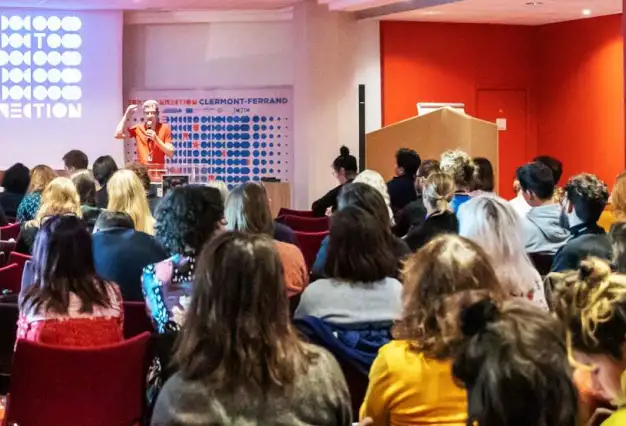
02 September 2025


